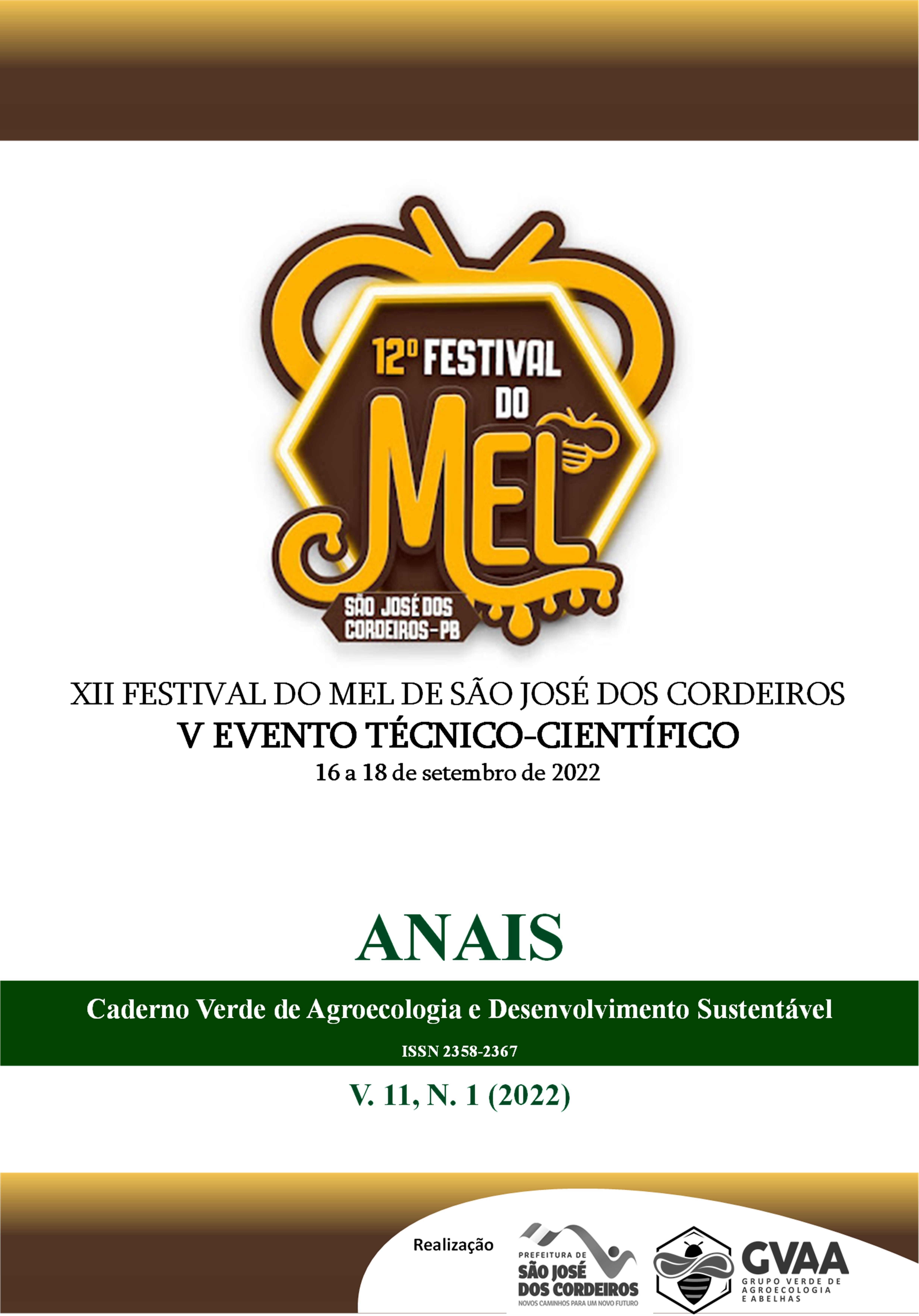Standards applied to the development of meliponiculture in São Bentinho, Paraiba, Brazil
Keywords:
Meliponiculture, Bees without sting, NormatizationAbstract
Currently, bee breeding can be divided into two distinct practices, Apiculture and Meliponiculture. It is understood by meliponiculture the art of handling the indigenous bees without sting, being the obtaining of honey one of the objectives of this activity. The development of meliponiculture is formally attributed to the Mesoamerican civilization of the Mayas and in Brazil the creation of native bees belonging to the gender Melipona was practiced by the natives since before the arrival of the Portuguese. In the Northeast this practice has been increasing and it is in the city of São Bentinho, the study site of the present work, which aims to standardize the meliponicultura in order to subsidize the new producers. The work consists of a qualitative research with documentary analysis, visits to associations and unstructured interviews in order to carry out a socioeconomic survey of honey producers. The city of São Bentinho has 20 honey producers that together produce between two and three tons of Apis honey. This research was carried out in partnership with the City Hall of São Bentinho, which in turn offered 20 boxes of meliponine production, as well as the Federal University of Campina Grande for subsidizing the present work. From the visits made, one can understand the reality of the producers and, thus, a draft law was prepared, already voted and sanctioned, that is, it is already a reality. Thus, the honey producers of the city are supported by the law and will have capacities offered by the university itself for the production and management of honey from stingless bees. It is concluded that the city has enormous potential for the production of honey from stingless bees, as well as more studies are suggested from the beginning of the activity of meliponicultura in the municipality.
Downloads
Published
How to Cite
Issue
Section
License
Termo de cessão de direitos autorias
Esta é uma revista de acesso livre, em que, utiliza o termo de cessão seguindo a lei nº 9.610/1998, que altera, atualiza e consolida a legislação sobre direitos autorais no Brasil.
O(s) autor(es) doravante designado(s) CEDENTE, por meio desta, publica a OBRA no Caderno Verde de Agroecologia e Desenvolvimento Sustentável, representada pelo Grupo Verde de Agroecologia e Abelhas (GVAA), estabelecida na Rua Vicente Alves da Silva, 101, Bairro Petrópolis, Cidade de Pombal, Paraíba, Brasil. Caixa Postal 54 CEP 58840-000 doravante designada CESSIONÁRIA, nas condições descritas a seguir:
O CEDENTE declara que é (são) autor(es) e titular(es) da propriedade dos direitos autorais da OBRA submetida.
O CEDENTE declara que a OBRA não infringe direitos autorais e/ou outros direitos de propriedade de terceiros, que a divulgação de imagens (caso as mesmas existam) foi autorizada e que assume integral responsabilidade moral e/ou patrimonial, pelo seu conteúdo, perante terceiros.
O CEDENTE mantêm os direitos autorais e concedem à revista o direito de divulgação da OBRA, com o trabalho simultaneamente licenciado sob a Licença Creative Commons do tipo atribuição CC-BY.
O CEDENTE têm autorização para distribuição não-exclusiva da versão do trabalho publicada nesta revista.
O CEDENTE têm permissão e são estimulados a publicar e distribuir seu trabalho online (ex.: em repositórios institucionais ou na sua página pessoal) a qualquer ponto antes ou durante o processo editorial, já que isso pode gerar alterações produtivas, bem como aumentar o impacto e a citação do trabalho publicado.








